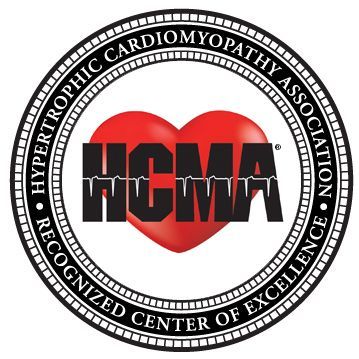By: Lisa Salberg, Founder and CEO Hypertrophic Cardiomyopathy Association
A new health insurance workaround could endanger the health of patients, particularly those with chronic illnesses like hypertrophic cardiomyopathy. This “new” concept is done in an attempt to cut costs for employers. This scheme is dubbed as the “alternative funding program.”
In the context of hypertrophic cardiomyopathy (HCM) — a heart condition in which the heart muscle becomes abnormally thick — timely and appropriate treatment is especially critical. HCM is a leading cause of sudden cardiac death in young athletes and can cause heart failure in patients of any age. Under these alternative funding programs, third-party vendors advise employers to exclude higher-cost specialty medications, which could include medication for HCM patients, from their employees’ benefit plans. They then steer these patients to apply to patient assistance programs, avoiding health plans’ financial obligations to pay for medications. Patient access programs are primarily designed for individuals who are uninsured or financially disadvantaged.
Vendors advocate for these programs as a mutual benefit. Yet, the reality unveils a slew of challenges while diverting the patient assistance funds directly to insurance plans and not to patients.
Detriments to Patient Health with HCM
Misusing programs, especially ones provided by patient assistance nonprofits or pharmaceutical companies’ foundations, leads to logistical, medical, and financial complications. These models benefit the payor and penalize the patients.
Image: This graphic was taken from https://www.rxbenefits.com/ebooks/understanding-alternative-funding-for-specialty/#:~:text=In%20a%20typical%20alternative%20funding,from%20the%20prescription%20drug%20benefit
For HCM patients, the process of applying and receiving approval for patient assistance could delay access, increase risk, and prolong symptom relief. Without their medications, HCM patients can experience increased pressure in their hearts and severe symptoms. They are also at risk for arrhythmia, advanced heart failure, or stroke. Delays in care can be catastrophic.
Furthermore, since these alternative funding programs fall outside the purview of regular health plans, the payments made by HCM patients toward their medications do not contribute to their annual insurance deductible. Consequently, they might end up paying significantly more throughout the year.
As an example, in a traditional plan, if a medication costs $1,000 per month, the insurance company may pay $800, and the patient pays $200 in copays and deductibles. In an alternative funding model, the patient may pay $200 for that same $1,000 medication, but the insurance company pays $0, and the patient assistance program pays $800. The $200 paid by the patient does not count toward their copay, deductible, or out-of-pocket maximum for the year, thus resulting in them paying more for their healthcare over the year.
The Bottom Line for HCM Patients
Patients with hypertrophic cardiomyopathy need timely access to their prescribed treatments. These alternative funding schemes introduce unnecessary delays and exploit the financial assistance systems meant for genuinely needy individuals. While employers might dodge the bullet of high prescription drug prices, they’re still incurring charges from the alternative funding vendors. Meanwhile, the labyrinthine drug pricing system only becomes more convoluted and less patient-friendly.
Patients with HCM and other genetic heart condition-and frankly, all Americans-deserve the consistent access they anticipated when they signed up for their health plan. The “alternative” touted by third-party vendors is alarmingly inadequate for them and overly burdens patient assistance programs. We believe legislative efforts should be engaged to outlaw this dangerous practice.
To learn more, you may wish to review these links:
- AIS Health. Industry Experts Question Alternative Funding Companies That Carve Out Some Specialty Drugs, ‘Abuse’ Charities. Published September 1, 2022.
- Drug Channels. The Shady Business of Specialty Carve-Outs. Published August 2, 2022.
- Amwins Rx; Amwins Group Benefits, LLC. Stealth Targeted Patient Assistance Program (PAP).
- Rx Benefits. How to Use Alternative Funding to Reduce Specialty Costs : Choosing the best track for handling high-dollar claim s.
- Rx Benefits. Understanding Alternative Funding for Specialty Medications.
- BMJ. Every month delayed in cancer treatment can raise risk of death by around 10%. Published April 11, 2020.
- Mercer. Prescription drug importation gets renewed attention. Published February 21, 2020.
The post Beware of “Alternative” Funding Programs When Choosing your Health Plan appeared first on Hypertrophic Cardiomyopathy Association.
HCMA Blog


 Translate
Translate